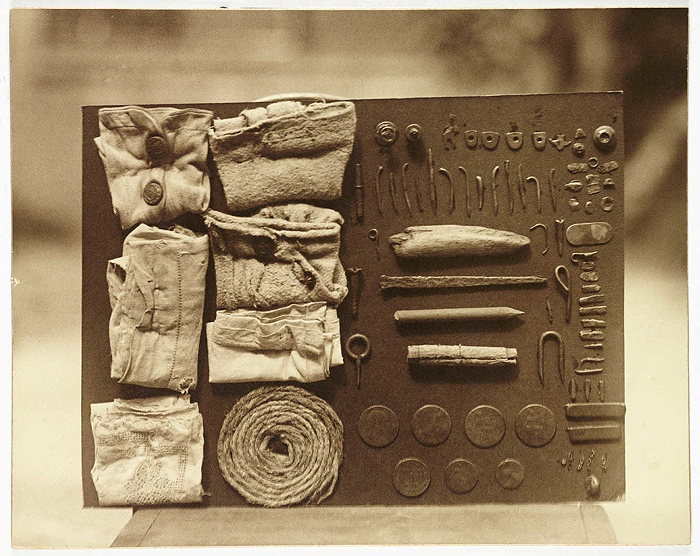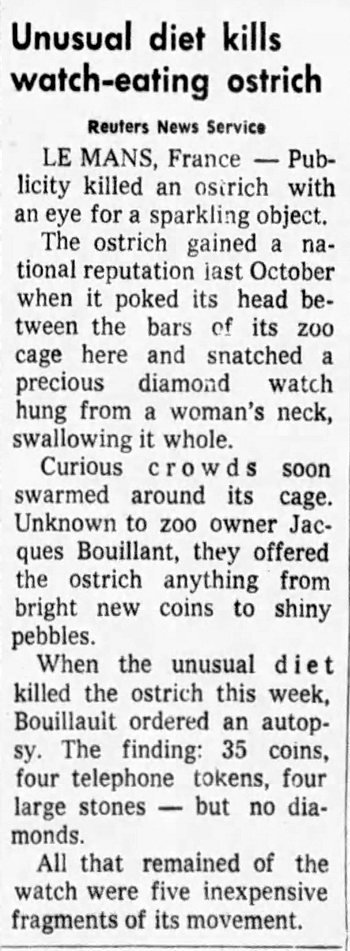Stomach
Esophageal exercises to treat GERD
Several articles in medical journals have proposed the idea of using esophageal exercises to treat GERD (gastroesophageal reflux disease). But how exactly does one exercise the esophagus?Here's one way, as described in the article "A Simple Exercise to Strengthen the Lower Esophageal Sphincter and Eliminate Gastroesophageal Reflux: An Autobiographical Case Report" by Eric Karrfalt:
Similarly, the authors of "Bridge Swallowing Exercise for Gastroesophageal Reflux Disease Symptoms: A Pilot Study" report that "bridge swallowing" can improve GERD symptoms. They helpfully provide a picture of the bridge swallowing position.

I have no idea if these techniques would work. Thankfully I don't suffer from GERD so I can continue eating upright.
via hacker news
Posted By: Alex - Sat Jan 11, 2025 -
Comments (0)
Category: Exercise and Fitness, Health, Stomach
No-Burp Syndrome
The inability to burp is known as retrograde cricopharyngeus dysfunction, or "no-burp syndrome." Anecdotes about people unable to burp date back centuries and had occasionally been reported in medical literature, but most doctors, until recently, were skeptical that the condition existed. Details from KFF Health News:"But we never saw the condition, so we didn't believe that it existed in real life," he said.
Smout's doubts persisted until he and colleagues studied a small group of patients a few years ago. The researchers gave eight patients with a reported inability to burp a "belch provocation" in the form of carbonated water, and used pressure sensors to observe how their throats moved. Indeed, the air stayed trapped. A Botox injection resolved their problems by giving them the ability to burp, or, to use an academic term, eructate.
"We had to admit that it really existed," Smout said.
Reddit is credited with bringing awareness to this condition after those afflicted with it began sharing their stories at the "No Burp" subreddit.
Posted By: Alex - Wed Oct 30, 2024 -
Comments (0)
Category: Health, Medicine, Stomach
Burned by a belch
In 1890, Dr. James McNaught of Manchester reported in The British Medical Journal the strange case of a 24-year-old factory worker whose burp caught on fire while he was holding a match, badly burning his face and lips. McNaught managed to replicate the burning belch with the man in his office, confirming it really did happen. He diagnosed the problem as the "eructation of inflammable gas" from the man's stomach.McNaught concluded that the man suffered from a disorder that caused food to ferment in his stomach and produce flammable gas, instead of being digested. He advised the man to eat foods that would pass more quickly out of his stomach, to avoid the fermentation.
More info: British Medical Journal, "A Case of Dilatation of the Stomach Accompanied by the Eructation of Inflammable Gas"

Posted By: Alex - Fri Apr 21, 2023 -
Comments (3)
Category: Health, Stomach, Smells and Odors
How much do you need to chew your food?
British dentist John H. Farrell spent much of his career studying the relationship between chewing and digestion. This involved repeated experiments in which he put bits of food in small, cotton-mesh bags, had subjects chew the food (or not), and then swallow it. The next step was more unpleasant:The years he spent doing this convinced him that "very little chewing is required for maximum digestion."
More info: "The effect on digestibility of methods commonly used to increase the tenderness of lean meat"


Bedford Times-Mail - Apr 17, 1964
Posted By: Alex - Mon Nov 21, 2022 -
Comments (3)
Category: Food, Experiments, Stomach, Teeth
The Contents of an Ostrich’s Stomach
Frederick William Bond took the photo below at the London Zoo showing the items found in an ostrich's stomach following an autopsy: a lace handkerchief, a buttoned glove, a length of rope, a plain handkerchief, copper coins, metal tacks, staples, hooks, and a four-inch nail. The nail had killed it.The photo is undated, but I'm guessing it was taken sometime in the 1930s. (Update: the Flickr source says it was taken circa 1930.)

Image source: National Science and Media Museum on Flickr
Along similar lines is this story from 1972 about items found in the stomach of an ostrich at a private French zoo: coins, telephone tokens, and stones. What wasn't found was the diamond watch it had snatched off a spectator the previous year.

Miami News - Jun 12, 1972
Posted By: Alex - Sat Feb 12, 2022 -
Comments (2)
Category: Animals, Food, Stomach
The Tummy Tutor
It also went by the name "Belly Beeper". The idea was that if you slouched or let your stomach out, it would start beeping. Supposedly this would train you to always keep your stomach muscles tensed and not slouch.Either that or it would train you to avoid wearing it.

The Miami Herald - Oct 7, 1973
Posted By: Alex - Tue Apr 21, 2020 -
Comments (2)
Category: Inventions, 1970s, Dieting and Weight Loss, Stomach
Sympathetic Vomiting
An outbreak of mass vomiting at a school in North Carolina is being attributed to some kids getting upset stomachs from eating a combination of fruit juice and spicy chips, and then a bunch of other kids being triggered into “sympathetic vomiting.” That's when people vomit in response to seeing other people vomit. According to wisegeek.com, biologists suspect that the phenomenon has its roots in our evolutionary history:Other cases of sympathetic vomiting occasionally make headlines, such as in 2014 when a flight was forced to make an emergency landing after one person's vomiting caused five other people to do likewise.
Posted By: Alex - Fri Mar 29, 2019 -
Comments (4)
Category: Psychology, Body Fluids, Stomach
I Heard the Voice of a Porkchop
Man so hungry he experiences auditory hallucinations.
Posted By: Paul - Wed Dec 10, 2014 -
Comments (7)
Category: Anthropomorphism, Food, Music, 1920s, Stomach
Sock It To Me

The owners of a 3 year old Great Dane took him to the vet because he was groaning and trying to throw up. After x-rays showed a mass of something in his stomach, the vet decided to operate. The surgery progressed something like a magician pulling hankies out of his pocket as the vet pulled sock after sock out of the dog's stomach. It was 43 in all pictured above. Fortunately the doggie came through just fine. Man, I'd hate to have to foot the bill for that though!
Posted By: Alex - Thu Sep 04, 2014 -
Comments (7)
Category: Animals, Dogs, Stomach, Eating
Bump Art
According to the Daily Mail, Bump Art is all the rage. This involves pregnant women painting their baby bumps. The Guardian interviews professional bump artist Julia Francis who says that "around 70% of women choose nature-based ideas such as flowers and leaves, a small percentage go for something 'really bizarre', and she has even done a few planets."Well, it sure beats placenta art. I guess us men can always join in the fun by painting our food-baby bumps.

Posted By: Alex - Sat Oct 20, 2012 -
Comments (5)
Category: Art, Fashion, Pregnancy, Stomach

| Who We Are |
|---|
| Alex Boese Alex is the creator and curator of the Museum of Hoaxes. He's also the author of various weird, non-fiction, science-themed books such as Elephants on Acid and Psychedelic Apes. Paul Di Filippo Paul has been paid to put weird ideas into fictional form for over thirty years, in his career as a noted science fiction writer. He has recently begun blogging on many curious topics with three fellow writers at The Inferior 4+1. Contact Us |




